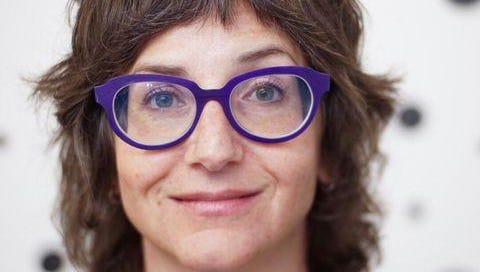Coach Spotlight: From Anthropologist to Nonfiction Book Coach
What is the path to becoming a book coach? Author Accelerator Certified book coaches answer 7 questions about their journey. This time we feature Amy Goldmacher
What did you do before becoming a book coach?
Because book coaching is my third career, I like to say I’ve spent more than 25 years in “information transformation.” I was a practicing anthropologist with my own research and consulting business. I worked with information architecture (IA), user experience (UX), and design companies that needed to know about their users to make product and service decisions. I collected, analyzed, and synthesized data so that others could solve business problems. Before anthropology, I worked at an academic publishing company in editorial, marketing, and sales positions. I loved books and wanted to be intimately involved in bringing them into the world.
How did your background prepare you for book coaching? What skills/talents/experiences feel most relevant?
Anthropologists are trained pattern-finders and sense-makers. We take what we observe and investigate and turn it into meaningful stories, basically. Data needs to be organized and structured in such a way that others can consume it and get meaning from it. I think that experience translates directly into book coaching because writers create raw material that then needs to be carefully and deliberately arranged so that readers can make meaning out of it. The way to do that is by constantly looking for the highest-level patterns and themes from the writing and holding that up against the point the writer wants to make. I tell the writers I work with the writing process is messy, but readers need the material to be organized meaningfully, so create an intentional path for the reader to follow.
In addition to having worked at a publisher, I’m also a traditionally published co-author of an anthropology text, so I have gone through the process of developing a proposal and writing a book for publication, and I bring those perspectives to my book coaching as well.
What is your relationship to reading, writing, and/or creativity? What kinds of books do you read? What other creative work do you do?
I’m an aspiring fiction author! I want to write a novel, and I’m trying to enjoy the process of learning craft and developing a story without putting the paralyzing pressure on myself to PRODUCE.
I love to read, of course. I love all kinds of nonfiction: memoir, narrative, prescriptive, experimental. As for reading fiction, I’m finding myself drawn to stories about when your own body is not safe, or when the people you love the most have the power to hurt you the most—it’s horrifying and visceral.
What is the last best book you read?
Motherthing by Ainslie Hogarth. It’s about a motherless young woman who has a difficult relationship with her husband’s mother, and after the mother-in-law’s death things start to unravel…I think Hogarth does an amazing job as a writer: the main character is filled with internal turmoil and we wonder if she’s a reliable narrator; her stakes are increasing; the twists are powerful, and the book is beautifully written as well. Goals!
What is your favorite part about being a book coach?
I love it when the writers I work with realize they CAN do this thing and become confident authors. I think the biggest realization for them is that writing a book is a PROCESS and it can be broken down into manageable steps, and that helps them overcome the fears that have kept them from attempting to write a book until now.
What is your biggest challenge around being a book coach and what are you doing to address it?
Everything’s always evolving: my definition of an “ideal client,” my offerings, my approach… I wish (and I think most writers and coaches feel this way too!) that we could just get “it” right the first time and be done with the trial and error. The lesson for me is that book coaching, like writing, is a PROCESS as well and we try something and collect information on whether it’s working or not and iterate accordingly. One of my favorite mantras is “measure progress by actions not outcomes,” and I think it applies to both book coaching and writing: a process will help us get to our destination.
Who is your ideal client and what is the first service you offer them?
I love to work with coaches and consultants who dream of writing a nonfiction book but feel there’s so much they know they don’t know about writing and publishing that they just don’t even start. I tell them what they need to know and what they can expect so they can get it done, in manageable, bite-sized bits, with accountability.
In a four-month process, I coach aspiring nonfiction authors to write killer book proposals that attract agents and publishers. Find out more here: Weekly book coaching




